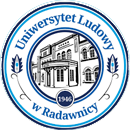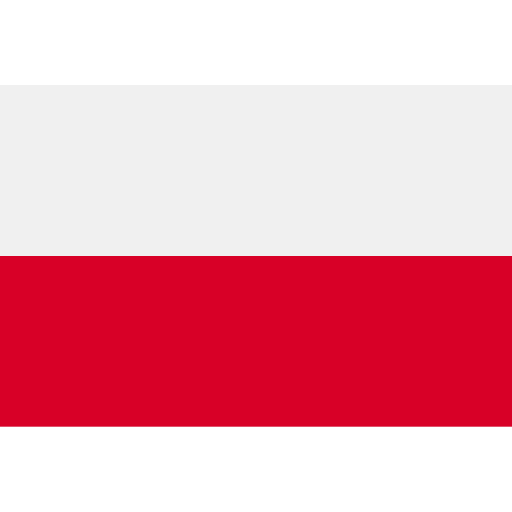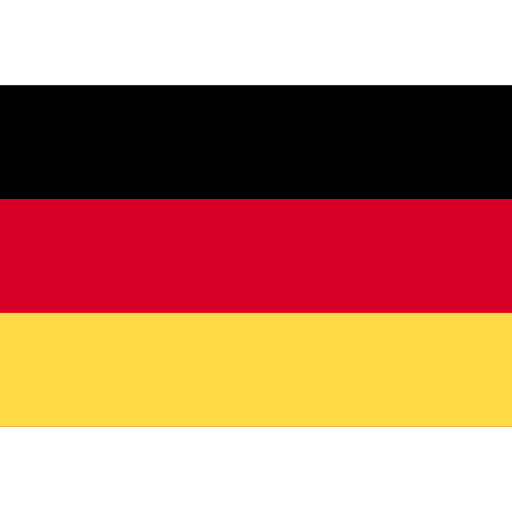History - Radawnica Folk High School
For you and with you since 1946
Radawnica Folk High School is located in the area of Krajna Zlotowska. Zlotowska Land - or Krajna was an area with strong traditions of Polishness, manifested in the period 1772-1945, when these lands, under the partition arrangements of the first partition of Poland, were incorporated into Prussia and later into Germany. Many years of Germanization pressure resulted, limiting the flow to these lands, of reliable knowledge of the cultural and economic achievements of Poland and its history. Numerous cultural and educational activists worked to deepen and consolidate the belief that the Zlotow Land (Krajna Złotowska) belonged to the Motherland. Nurturing Polish traditions and folk customs, caring for the purity of Polish speech based on the underground book, press and in sung form, through the formation of singing groups, love of the mother tongue, patriotism. Activity in the Union of Poles in Germany became for many residents of Krajna the cause of displacement, imprisonment, shipment to concentration camps, ending very often in death.
The village of Radawnica, in which our school is located, lies on the Zlotow-Lędyczek-Szczecinek bus route. Its distance from the district town is 11 km. The name of the village - according to older residents - comes from the word "joy, joyful people", hence the name Radawnica, or Radownicy, used by them, and in the German period Radownitz. The village is built on a circular plan fastened by two brackets: the parish church, hiding the remains of the former owners of the Radawnica estate of the Ossten - Sacken family, and St. Stanislaus Church in the palace park.
The Folk High School is located in a neo-Gothic palace belonging in the 17th century, along with the village, to the Zlotow key, owned by the Grudna-Grudzinski family of the Grzymala coat of arms, owners of a magnificent library located in the palace, consisting of 2,000 works in Polish, French and German - a book collection catalogued on 65 pages.
The palace, which was given its present shape in the 19th century, was owned by the Getzendorf-Grabowski family of counts until 1919, and in the interwar period, bought by the German authorities, it was the headquarters of the fascist German educational organization (for female educators of German kindergartens). The estate, however, was parceled out.
The year 1945 brings Radawnica its longed-for freedom, and the Krajna Land, separated from the Motherland in the First Partition of Poland, now returns to it.
Radawnica Folk High School was founded in 1946 in Zakrzewo near Zlotow - the strongest center of Polish life in the interwar period - on the initiative of highly regarded teachers and educational activists, Maria and Edmund Splitt. The work of the institution was inaugurated with the organization of 8-month repolonization courses, the main purpose of which was to prepare cultural and educational activists for work in the countryside. It became a necessity to integrate young people into the current of state, social, economic and cultural life of the country. Learning to read, write and speak Polish correctly, lectures on Polish literature, history and geography, singing and staging folk songs, were to consolidate the bond of young people with the liberated Fatherland. They were to pass on the knowledge they gained to other people in the future as part of a broad repolonization effort.
In 1947, the headquarters of Radawnica Folk High School was moved from Zakrzewo to Radawnica, due to better housing conditions. Edmund Splitt became director of the institution, while Franciszek Glaza, Wladyslaw Murawa and Julian Materek became teaching staff. The Folk High School in Radawnica is headquartered in a beautiful palace surrounded by a 3-hectare English-style park. The so-called "remnant farm" (48 hectares of land and farm buildings) was put at the disposal of the institution. The income from the farm was intended to be used for the activities of the Folk High School, at the same time the farm was to serve as a model for young people and local farmers learning rational farming.
The graduates were the first organizers of libraries, community centers and cultural life in the villages.
Radawnica Folk High School placed a strong emphasis on cultural and educational activities, and organized excellent artistic groups from among the students, teachers and local society. Among the major events of that period was the staging of "Balladine," "Antigone," and "The Wedding of Jacob Szela" against the backdrop of the palace (this is reflected in an entry in the Radawnica Chronicle run by an employee of the Public Library in Radawnica). The Folk High School's artistic group also performed in the provinces of Szczecin and Koszalin.
As chronicle records convey, the group was enthusiastically welcomed in the localities where it performed. At that time, thanks to the activities of the Folk High School, the cultural and educational life not only in Radawnica, but also beyond its borders, revived tremendously.
The end of the 1950s was a very important period for the Folk High School movement in Poland. In September 1958, institutions closed in the early 1950s began to reactivate. In 1950-1958, there was an orphanage in the palace where the school is now located. As it is assumed, the result of this is the lack of documentation of the institution, some documents were lost and dispersed. After their return, the training of cultural and educational activists continued at Radawnica Folk High School. Two experimental courses were also conducted to prepare girls from the rural environment to run kindergartens, as well as a course to prepare for bookkeeping.
From 1950 to 1968, the director of the institution is Julian Materek, a long-time employee of Radawnica Folk High School, a man with extensive pedagogical experience and an unparalleled organizational flair.
In 1968 Wanda Kowalczyk took over as director of the facility.
In 1970-1984, second-level qualification courses were conducted for organizers of socio-cultural activities. During this period, such specialists as Stefan Starczewski, PhD - sociologist, Dzierżymir Jankowski, PhD - specialist in cultural and educational pedagogy, Kazimiera Wołos, PhD - ethnographer, Stanislaw Pręgowski - photographer, Edward Niemiro - author of excellent items of literature in the field of photography and film - cooperated with the Folk High School in Radawnica. The block of specialized subjects was carried out by lecturers Irena Wachowska, Teresa Kolodziejska, Franciszek Kowalewski, Stefan Wojtaś, Wojciech Grzelązka, Jan Mainka, Stanisława and Józef Szarmach, Marian Szulc, Kazimierz Pawczynski, and employees - full-time teachers at UL: Mieczysław Lassa, Jan Grudzień, Kazimierz Drwiła, Marian Skroczak, Barbara Grąziewicz, Leszek Suwik, Wojciech Dreas, Tadeusz Wójcik, Elżbieta Nowak, Marian Zejdlewicz, Elżbieta and Jan Wojtasi, Czesław Pietrzykowski, Jan Niedźwiecki.
Graduates of the 1970-1975 courses are employed in the "RUCH" and "ROLNIK" clubs, and also form the cadre of cultural and educational activists in the Circles and Boards of Youth Organizations. Meanwhile, since the mid-1970s, a new specialization in photography and film has been introduced. Graduates of these courses ran photographic clubs and circles at Culture Houses, Film Discussion Clubs or practiced artistic photography. We hear about the stories of some of the graduates from the mass media, we can mention here: Grażyna Auguścik - jazz singer, Jolanta Dylewska and Andrzej Miłoszewicz - photographic artists, winners of the prestigious award at the 1995 Polish Film Festival in Gdansk (Golden Lions of Gdansk for cinematography). Many of the graduates are self-realized in the field of artistic photography, which is confirmed by the invitations for exhibitions and vernissages of photographic works that have been arriving at the address of Radawnica Folk High School for many years. The skills and knowledge acquired at the course provided a path to success in the professional field: Marian Rynkiewicz and Andrzej Obzejta - employees of TV Gdańsk, Andrzej Seweryn, Jacek Paluchowski, Maciej Papara, Mirosław Nowik - now photographers.
In 1985, two courses were run simultaneously: a qualification course for photographic instructors and a new one, "Economics and organization of rural households." The change in the direction of education was dictated by the needs of the local environment; this is a typically agricultural environment. In Pila voivodeship and neighbouring provinces there was a development of agricultural consulting, and for this reason there was an increased demand for qualified instructors. After a change in the profile of education, Kazimierz Jaszcz, M.A., became the director of the institution in Radawnica. Subjects implemented in the course "Economics and organization of a rural household" were: psychology, pedagogy, sociology, methodology of teaching about rural household, family nutrition, technology of preparing meals and preserves, manual techniques: embroidery, macramé, weaving, hand knitting.
Since 1984, Ewa Huńka, a long-time employee of the Folk High School in Większyce, has become director of the institution. The teaching staff consists of teachers with extensive pedagogical experience and knowledge: Eugeniusz Malyga PhD, Barbara Zychlinska-Malyga M.A., food technologist-Elzbieta Gmurczyk, Cezara Swietoniowska M.A., Irena Iskra M.A..
Teachers in Folk High Schools are at the same time educators at the house. They are on duty as educators from 7° to 22°, and are available and open to the problems of students. During this period, the principle of the folk high school of putting education above the purely educational functions of the institution is fully implemented. Thus, emphasis is placed on the development of the alumni's personality, the regularity of interpersonal contacts, education by example and group action.
Education becomes a complement to the educational functions of the Folk High School
In 1989, Barbara Mincewicz M.A., who had worked as a teacher-educator since 1985, became director of the school. The Pedagogical Board consists of Irena Iskra M.A. - working continuously at the Folk High School in Radawnica since 1984 (a graduate of the Folk High School in Większyce), Miroslaw Mincewicz M.A. - working since 1987, Elzbieta Gmurczyk M.A. - working since 1985. These teachers are full-time staff, with professional preparation and experience in educational work with young people. In addition to full-time staff, specialists are employed when needs be.
Until 1995, a program to train female rural farm instructors was implemented, targeting girls living in villages and small towns. Between 1985 and 1995, 297 female students completed this course. Graduates of these courses maintain contact by letter with the institution or with the staff of our Folk High School, informing them of their further lives, events in their daily and personal lives (change of marital status, birth of children, etc.). This testifies to the strong emotional bond established between staff and students during their study and stay at the Folk High School in Radawnica.
Since its inception, Radawnica Folk High School has always tried to carry out activities appropriate to the social and economic conditions of the state, and wanted to be needed by society, especially the youth.
Therefore, since 1995, we have launched the Medical Vocational School of Occupational Therapy, which aims to restore independence and self-confidence to people with disabilities. The occupational therapy profession is a young discipline, which offers the chance for our graduates to find a suitable job.
The second proposal was the Post-Secondary School of Tourist Services. No one needed to be convinced that the development of tourism was the branch of the economy that was still underutilized in our country, among other reasons because there was a lack of adequately trained personnel. Radawnica Folk High School kept on trying to bridge this gap.
At the same time, we run short-term courses: housekeeping, foreign languages, weaving, wickerwork, macramé, hay braiding, glass painting, typing, computerized therapeutic massage, camp educators, etc.
In 1998 we launched the Post-Secondary School for Social Service Workers, which was devoted to train students in the profession of social worker. The main aim was to prepare students for work in social welfare homes, labor offices, social welfare centers, etc. Since then this school has received a great response from interested people; most often those already working, who wish to supplement their professional education.
At the same time, we launched courses to prepare those who have already completed high school and have not passed the matriculation exam (equivalent to A-levels).
Ha on the basis of the general characteristics and historical outline, it is possible to get an idea of how great the thematic diversity of the courses was, and how this orientation was related to the historical and socio-political situation of our nation at the time.
Radawnica Folk High School has been in continuous operation for almost 80 years. In the activities of the institution throughout its history, there was only a six-month break as a result of the martial law imposed in 1981, then teaching resumed again, which continues without interruption to this day.
All of the aforementioned courses were geared towards the training of future personnel - mainly for community centers, clubhouses, day care centers, libraries, counseling centers of small towns, villages and settlements. The task of the graduates was to develop cultural life in small towns, they were a kind of cultural "leaven". Their role was to instill the truth that culture, is not just entertainment, relaxation or recreation, but also "creating" oneself, one's worldview and model of life, developing one's own interests, expanding knowledge and working for the environment in which one lives.
In total, all types of courses that the Folk High School ran in Radawnica were completed by more than ten thousand people. The students came mostly from rural and small-town backgrounds.
Surveys conducted among the students and graduates of the "Economics and Organization of Rural Household" courses indicate that our Folk High School largely fulfills its established functions, i.e. the educational, formative and social functions. This is confirmed by the contacts maintained by students with the institution. Many of the graduates confirm in letters that the time spent at our school and the knowledge acquired during the education are very important experiences in their lives.
Radawnica Folk High School is not an institution operating in a social vacuum. Its existence and functioning is closely related to the environment in which it is located.
Our school is a meeting place for many communities. Since its inception it has hosted meetings, conferences, gatherings and entertainment events aimed at different age groups with different levels of interest.






